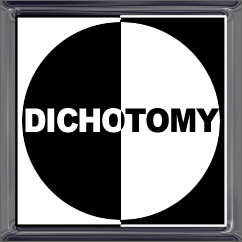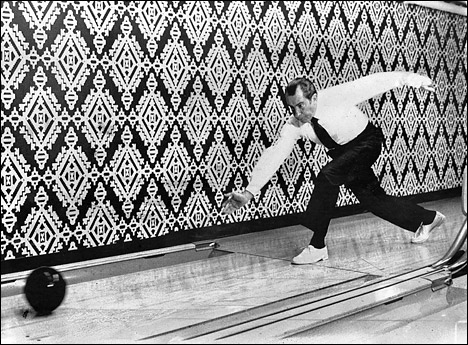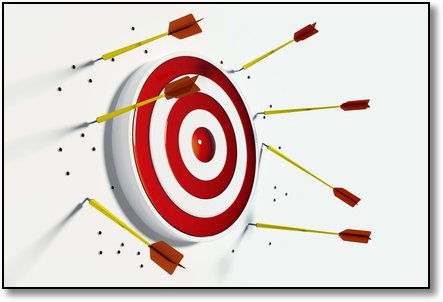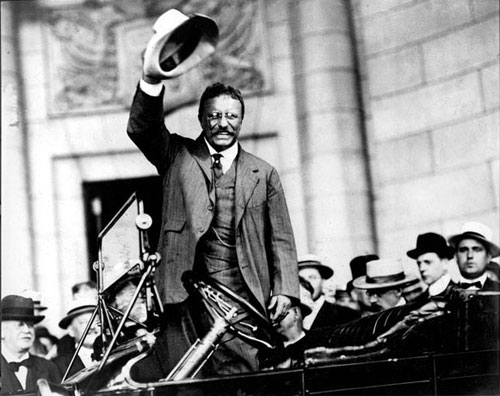Dewey 21C: October 2010 Archives
For those who may have missed this particular topic when I blogged about it on Dewey21C, it has returned in a slightly reworked version on The Huffington Post:
Click here to read The Lost Paragraphs of Arne Duncan
I think that a lot of people don't realize that the past decade has seen historic increases to funding for public education. Some school districts, like the New York City public schools had an increase of 80% or more.
It is a tough pill to swallow, once you realize that the historic increases to funding for K-12 public education did not propel a proportionate increase in the provision and access to quality arts education, particularly in urban, big city school districts.
And now, with state spending falling off a cliff, in a time of profound state deficits, it is quite chilling to read about a high school principal who appears to view the world as either graduation or physical education.
,

It is a tough pill to swallow, once you realize that the historic increases to funding for K-12 public education did not propel a proportionate increase in the provision and access to quality arts education, particularly in urban, big city school districts.
And now, with state spending falling off a cliff, in a time of profound state deficits, it is quite chilling to read about a high school principal who appears to view the world as either graduation or physical education.
It's a puzzling story, but you have to wonder, is it a canary in the coal mine, for what's to come as hard choices and false dichotomies increase in this time of budget crunch and higher and higher stakes accountability?
,

Sorry H.G., but it's really more like the shape of things already here.
Okay, here's a swell YouTube video of the group Atomic Live, performing "Take Me Out," live on the NYC subway, with instruments all emulated by their iPhones:
It made me smile...
Okay, here's a swell YouTube video of the group Atomic Live, performing "Take Me Out," live on the NYC subway, with instruments all emulated by their iPhones:
It made me smile...
On Tuesday, October 19, at 2:15 p.m. EDT, the White House is hosting a live web chat with leaders from the President's Committee on the Arts and the Humanities.
You can watch live or visit the archived chat later on.
For those of you on Facebook, meaning practically everyone, you can submit questions via the White House Facebook page.
The participants, all members of the Presidents Commission, include:
- Chuck Close, PCAH Member and visual artist
- Margo Lion, PCAH Co-Chair
- George Stevens, Jr., PCAH Co-Chair
- Damian Woetzel, PCAH Member and ballet dancer
Further details and instructions on how to submit a question are available on the White House blog.
Artist Corps, anyone?


This one is in the pretty cool category.
I don't think it's all that often that a big city mayor and a the chief instructional administrator of a school district host and directly participate in an arts education forum.
What you usually get, at most, is a proxy for the mayor, or perhaps a very brief speech. This event appears to be different, which makes it noteworthy.
And what is more, the forum directly involves students!
Nice.
Click here to read: Seattle Mayor and Chief Academic Officer Host Arts Education Forum, from the Seattle Examiner.
I don't think it's all that often that a big city mayor and a the chief instructional administrator of a school district host and directly participate in an arts education forum.
What you usually get, at most, is a proxy for the mayor, or perhaps a very brief speech. This event appears to be different, which makes it noteworthy.
And what is more, the forum directly involves students!
Nice.
Click here to read: Seattle Mayor and Chief Academic Officer Host Arts Education Forum, from the Seattle Examiner.
A panel of Seattle students will lead a discussion with Mayor Mike McGinn and Seattle Public Schools' Susan Enfield about how the arts engage, challenge and motivate young people.
I am really pleased to be able to share with the readers of Dewey21C the news that I am now blogging for the new education section of The Huffington Post.
Click here to read: Waiting for All The Superheroes.
I expect to post entries there somewhere between two to four times a month. It presents a somewhat different challenge than writing for Dewey21C: What I hope to bring to The Huffington Post, is a perspective on arts education to a publication that is not arts and arts education specific. For Dewey21C, my goal has always been framed by an audience that was primarily in the arts field, writ large.
I hope that you will click on through and share the post with anyone you think is interested.
And please, please be sure to post a comment, as it would be great to show The editors at The Huffington Post that there is a lot of interest around arts and education.
And please, please be sure to post a comment, as it would be great to show The editors at The Huffington Post that there is a lot of interest around arts and education.
WIsh me luck.
Many in the arts field were captivated by the language in then Candidate Obama's arts platform calling for the creation of an "Artist Corps."
Click here to read the full interview on Barry's Blog: http://blog.westaf.org/2010/10/preisdents-committee-co-chair-interview.html

Since the late spring, I've been hearing bits and pieces about work The President's Committee on the Arts and Humanities is doing this project. Apparently, they've been meeting with leaders in arts and education in order to develop a plan. That's about all I had heard or seen until now.
For the first time there's some official information, in this instance coming from an interview by Barry Hessinius on his popular blog: Barry's Blog. In today's post, Barry features an interview with Margo Lion and George Stevens, Jr., who are co-chairs of The President's Committee.
First up in the interview is the Artist Corps:
Well I think that we're interested in the notion of the Artist's Corps (along the lines of the Peace Corps); developing that concept, but doing the research that is necessary first, to analyze the need and the manner in which we can meet those needs to have more artists working, particularly in schools.
Click here to read the full interview on Barry's Blog: http://blog.westaf.org/2010/10/preisdents-committee-co-chair-interview.html

From today's Huffington Post comes a blog by George Heymont titled More Funding for School Arts Programs, Less for Sports.

While Obama's Secretary of Education, Arne Duncan, is working to address the overwhelming problems facing America's schools, I've got one suggestion that is long overdue: Let's reverse the priorities previously given to sports activities and arts education in our schools. Let's make the arts a top priority in every school's extracurricular activities. Doing so might help develop more motivated, more sophisticated, more adaptable, more tolerant, and better educated students in future generations. It will also prepare them to be better citizens of the world.
In many of school districts, sports, or rather physical education has done even worse the arts programs. Calling for even less sports, particularly in urban school districts is a sort of battle of the crumbs left on the table. It's hard to imagine much can be gained by denigrating physical education.
With friends like these...

Let's welcome back Jane Remer to Dewey21C. It's been a bit of time since her last guest entry. I know I missed her. How about you? --RK
************************************************************************************************************
Jane Remer's CliffNotes
The New Messiah: Are the Arts Waiting for Godot...er, Superman or woman?
October 4, 2010
 The latest flurry that has caught the interest of some, but by no means all, Americans (after all, we have the play-offs, football, latest sex scandal, questionable police shooting, the economy, and so forth to distract us), is the documentary movie, Waiting for Superman. Davis Guggenheim, who offered us Inconvenient Truths narrated by Al Gore, and whose "liberal" leanings are paraded in his bios and descriptions, has managed to stir up considerable controversy about what ails American education (oh, no, not that again! We've been hearing about that just about every decade since the 1900's - just ask Diane Ravitch, or better yet, read her stunning collection of books).
The latest flurry that has caught the interest of some, but by no means all, Americans (after all, we have the play-offs, football, latest sex scandal, questionable police shooting, the economy, and so forth to distract us), is the documentary movie, Waiting for Superman. Davis Guggenheim, who offered us Inconvenient Truths narrated by Al Gore, and whose "liberal" leanings are paraded in his bios and descriptions, has managed to stir up considerable controversy about what ails American education (oh, no, not that again! We've been hearing about that just about every decade since the 1900's - just ask Diane Ravitch, or better yet, read her stunning collection of books).
I will not recount the many reviews, comments, blogs and other communications about the movie which I'm sure most of you have already read (if not, just Google the title and you will be inundated with hits.) Certain people believe the movie will stimulate a serious debate about education; others are extolling it, critiquing it, or dismissing it. My concern is elsewhere.
American education has had its share of detractors and boosters for over a century. Periodically, and recently, regularly, someone beats the drum for change. The changes recommended vary from decade to decade but the theme is the same: Public education does not work because (you fill in the blanks) and the remedy is (your turn). If we don't do (the remedy), we will:
• Lose our competitive edge in the global economy
• Look like losers in the "race to the top" of K-16 graduates...these days Finland and a few other surprising countries all of whom have strong teacher unions, detailed and ongoing professional development and support for their teachers, for whom they provide serious preparation and training after passing difficult muster to be admitted to teach. They also pay teachers' salaries almost twice as high as we do, and have declared education a top priority within their national goals.
• Fall prey to the corporate and business world entrepreneurs who want to make a buck off the situation, especially by investing into charter schools (of which research now shows only 17% do as well or better currently than public schools)
• Look desperately around for a messiah, this time Superman, even though they know that like Santa Claus, he or she does not exist.
I believe we have no chance of getting out of the reform ruts we're in unless we rely on the investigation of a few "simple" (to say, not do) ideas:
• Fairness to each and every American student. The current side-step is lotteries that send a cruel message and potentially ruin young lives and chances. It is unacceptable that every child or youngster will not get an equally strong and excellent opportunity for a good education. Not in America!
• Fairness to each and every state in the Union. Education is not a business model; when you Race to the Top with a dozen or so states and leave out all the rest of the 50 states, what message does that broadcast about what should be our national commitment to educational opportunity with first rate teachers for everyone! Competition for what should be a civic birthright is divisive and destructive of the collaborative spirit we need to share what works, how and why.
• Education is not a comic book with heroes and villains, angels and demons, that make headlines, stir up a buzz, and then fade, almost immediately from view. It must be a top priority, soundly funded across all the states, that accepts the fact that all the fancy ideas and theories won't make an iota of sustainable change without legions of top notch teachers for all our children.
• I will skip the insane addiction to testing, a climate of punishment and reward, the prevalence of the business community when it comes to educational policy and politics, and all the rest. You know that, already.
And what, may you ask, does this have to do with the arts in education? Well, quite simply, without serious attention to the infrastructure for good schools and schooling, a commitment to a top notch education for all students, and an abundant teacher work force whose preparation and training includes the arts - all the arts - for all the children, youngsters, teens and adults, we will never see any change in the current status quo. We will continue riding the roller coaster through high and low valleys, stopping to admire and boast about the pockets of excellence scattered around the states that rarely sustain an existence beyond a few years. And we will continue to rely on the occasional grants from national state and local arts councils, foundations and the kindness of strangers and other individual supporters.
My point is given the current economy, the predilections of the President and his Secretary of Education, the mayors and superintendents and chancellors who know little about schools and schooling first hand, and the general unrest across the country, it is either the worst or best of times to take a stand for an excellent education for all, perhaps town by town, city by city, district by district.
Just don't give up. That's the message of Godot. It's also the human condition. We must be our own messiahs in this struggle.
Jane Remer
**********************************************************************************************************
JANE REMER'S CLIFFNOTES We are at another rocky precipice in our history that threatens the survival of the arts in our social fabric and our school systems. The timing and magnitude of the challenges have prompted me to speak out about some of the most persistent issues in the arts education field during the last forty-plus years. My credo is simple: The arts are a moral imperative. They are fundamental to the cognitive, affective, physical, and intellectual development of all our children and youth. They belong on a par with the 3 R's, science, and social studies in all of our elementary and secondary schools. These schools will grow to treasure good quality instruction that develops curious, informed, resilient young citizens to participate fully in a democratic society that is in constant flux. I have chosen the title Cliff Notes for this forum. It serves as metaphor and double entendre: first, as short takes on long-standing and complicated issues, and second, as a verbal image of the perpetually perilous state of the arts as an essential part of general public education. I plan to focus on possible solutions and hope to stimulate thoughtful dialogue on-line or locally.
************************************************************************************************************
 Jane Remer has worked nationally for over forty years as an
author, educator, researcher, foundation director and consultant. She
was an Associate Director of the John D. Rockefeller 3rd Fund's Arts in
Education Program and has taught at Teachers College, Columbia
University and New York University. Ms. Remer works directly in and with
the public schools and cultural organizations, spending significant
time on curriculum, instruction and collaborative action research with
administrators, teachers , students and artists. She directs the
Capezio/Ballet Makers Dance Foundation, and her publications include
Changing Schools Through the Arts and Beyond Enrichment: Building Arts
Partnerships with Schools and Your Community. She is currently writing
Beyond Survival: Reflections On The Challenge to the Arts As General
Education. A graduate of Oberlin College, she attended Yale Law School
and earned a masters in education from Yale Graduate School.
Jane Remer has worked nationally for over forty years as an
author, educator, researcher, foundation director and consultant. She
was an Associate Director of the John D. Rockefeller 3rd Fund's Arts in
Education Program and has taught at Teachers College, Columbia
University and New York University. Ms. Remer works directly in and with
the public schools and cultural organizations, spending significant
time on curriculum, instruction and collaborative action research with
administrators, teachers , students and artists. She directs the
Capezio/Ballet Makers Dance Foundation, and her publications include
Changing Schools Through the Arts and Beyond Enrichment: Building Arts
Partnerships with Schools and Your Community. She is currently writing
Beyond Survival: Reflections On The Challenge to the Arts As General
Education. A graduate of Oberlin College, she attended Yale Law School
and earned a masters in education from Yale Graduate School.
************************************************************************************************************
Jane Remer's CliffNotes
The New Messiah: Are the Arts Waiting for Godot...er, Superman or woman?
October 4, 2010
 The latest flurry that has caught the interest of some, but by no means all, Americans (after all, we have the play-offs, football, latest sex scandal, questionable police shooting, the economy, and so forth to distract us), is the documentary movie, Waiting for Superman. Davis Guggenheim, who offered us Inconvenient Truths narrated by Al Gore, and whose "liberal" leanings are paraded in his bios and descriptions, has managed to stir up considerable controversy about what ails American education (oh, no, not that again! We've been hearing about that just about every decade since the 1900's - just ask Diane Ravitch, or better yet, read her stunning collection of books).
The latest flurry that has caught the interest of some, but by no means all, Americans (after all, we have the play-offs, football, latest sex scandal, questionable police shooting, the economy, and so forth to distract us), is the documentary movie, Waiting for Superman. Davis Guggenheim, who offered us Inconvenient Truths narrated by Al Gore, and whose "liberal" leanings are paraded in his bios and descriptions, has managed to stir up considerable controversy about what ails American education (oh, no, not that again! We've been hearing about that just about every decade since the 1900's - just ask Diane Ravitch, or better yet, read her stunning collection of books).
I will not recount the many reviews, comments, blogs and other communications about the movie which I'm sure most of you have already read (if not, just Google the title and you will be inundated with hits.) Certain people believe the movie will stimulate a serious debate about education; others are extolling it, critiquing it, or dismissing it. My concern is elsewhere.
American education has had its share of detractors and boosters for over a century. Periodically, and recently, regularly, someone beats the drum for change. The changes recommended vary from decade to decade but the theme is the same: Public education does not work because (you fill in the blanks) and the remedy is (your turn). If we don't do (the remedy), we will:
• Lose our competitive edge in the global economy
• Look like losers in the "race to the top" of K-16 graduates...these days Finland and a few other surprising countries all of whom have strong teacher unions, detailed and ongoing professional development and support for their teachers, for whom they provide serious preparation and training after passing difficult muster to be admitted to teach. They also pay teachers' salaries almost twice as high as we do, and have declared education a top priority within their national goals.
• Fall prey to the corporate and business world entrepreneurs who want to make a buck off the situation, especially by investing into charter schools (of which research now shows only 17% do as well or better currently than public schools)
• Look desperately around for a messiah, this time Superman, even though they know that like Santa Claus, he or she does not exist.
I believe we have no chance of getting out of the reform ruts we're in unless we rely on the investigation of a few "simple" (to say, not do) ideas:
• Fairness to each and every American student. The current side-step is lotteries that send a cruel message and potentially ruin young lives and chances. It is unacceptable that every child or youngster will not get an equally strong and excellent opportunity for a good education. Not in America!
• Fairness to each and every state in the Union. Education is not a business model; when you Race to the Top with a dozen or so states and leave out all the rest of the 50 states, what message does that broadcast about what should be our national commitment to educational opportunity with first rate teachers for everyone! Competition for what should be a civic birthright is divisive and destructive of the collaborative spirit we need to share what works, how and why.
• Education is not a comic book with heroes and villains, angels and demons, that make headlines, stir up a buzz, and then fade, almost immediately from view. It must be a top priority, soundly funded across all the states, that accepts the fact that all the fancy ideas and theories won't make an iota of sustainable change without legions of top notch teachers for all our children.
• I will skip the insane addiction to testing, a climate of punishment and reward, the prevalence of the business community when it comes to educational policy and politics, and all the rest. You know that, already.
And what, may you ask, does this have to do with the arts in education? Well, quite simply, without serious attention to the infrastructure for good schools and schooling, a commitment to a top notch education for all students, and an abundant teacher work force whose preparation and training includes the arts - all the arts - for all the children, youngsters, teens and adults, we will never see any change in the current status quo. We will continue riding the roller coaster through high and low valleys, stopping to admire and boast about the pockets of excellence scattered around the states that rarely sustain an existence beyond a few years. And we will continue to rely on the occasional grants from national state and local arts councils, foundations and the kindness of strangers and other individual supporters.
My point is given the current economy, the predilections of the President and his Secretary of Education, the mayors and superintendents and chancellors who know little about schools and schooling first hand, and the general unrest across the country, it is either the worst or best of times to take a stand for an excellent education for all, perhaps town by town, city by city, district by district.
Just don't give up. That's the message of Godot. It's also the human condition. We must be our own messiahs in this struggle.
Jane Remer
**********************************************************************************************************
JANE REMER'S CLIFFNOTES We are at another rocky precipice in our history that threatens the survival of the arts in our social fabric and our school systems. The timing and magnitude of the challenges have prompted me to speak out about some of the most persistent issues in the arts education field during the last forty-plus years. My credo is simple: The arts are a moral imperative. They are fundamental to the cognitive, affective, physical, and intellectual development of all our children and youth. They belong on a par with the 3 R's, science, and social studies in all of our elementary and secondary schools. These schools will grow to treasure good quality instruction that develops curious, informed, resilient young citizens to participate fully in a democratic society that is in constant flux. I have chosen the title Cliff Notes for this forum. It serves as metaphor and double entendre: first, as short takes on long-standing and complicated issues, and second, as a verbal image of the perpetually perilous state of the arts as an essential part of general public education. I plan to focus on possible solutions and hope to stimulate thoughtful dialogue on-line or locally.
************************************************************************************************************
 Jane Remer has worked nationally for over forty years as an
author, educator, researcher, foundation director and consultant. She
was an Associate Director of the John D. Rockefeller 3rd Fund's Arts in
Education Program and has taught at Teachers College, Columbia
University and New York University. Ms. Remer works directly in and with
the public schools and cultural organizations, spending significant
time on curriculum, instruction and collaborative action research with
administrators, teachers , students and artists. She directs the
Capezio/Ballet Makers Dance Foundation, and her publications include
Changing Schools Through the Arts and Beyond Enrichment: Building Arts
Partnerships with Schools and Your Community. She is currently writing
Beyond Survival: Reflections On The Challenge to the Arts As General
Education. A graduate of Oberlin College, she attended Yale Law School
and earned a masters in education from Yale Graduate School.
Jane Remer has worked nationally for over forty years as an
author, educator, researcher, foundation director and consultant. She
was an Associate Director of the John D. Rockefeller 3rd Fund's Arts in
Education Program and has taught at Teachers College, Columbia
University and New York University. Ms. Remer works directly in and with
the public schools and cultural organizations, spending significant
time on curriculum, instruction and collaborative action research with
administrators, teachers , students and artists. She directs the
Capezio/Ballet Makers Dance Foundation, and her publications include
Changing Schools Through the Arts and Beyond Enrichment: Building Arts
Partnerships with Schools and Your Community. She is currently writing
Beyond Survival: Reflections On The Challenge to the Arts As General
Education. A graduate of Oberlin College, she attended Yale Law School
and earned a masters in education from Yale Graduate School.
You know, comedy is an art form, don't you think? And, in the spirit, Lewis Black is the Stravinsky of comedy. When I really start to miss George Carlin, which I do just about daily, Lewis picks up the slack.
Best line: NBC: One week for education; 51 weeks for incarceration.
Best line: NBC: One week for education; 51 weeks for incarceration.
| The Daily Show With Jon Stewart | Mon - Thurs 11p / 10c | |||
| Back in Black - Education Crisis | ||||
| ||||
As announced in the San Jose Mercury News, Gov. Schwarzenegger has vetoed a bill that would have waived high school graduation requirements for arts education (and foreign languages), allowing students to opt for credits in career and technical education coursework instead.
The real kicker here would have been the creation of a de facto caste system, whereby only those on a pathway to college are required to take the arts. Those who may go on to a vocation, well, they don't need the arts do they? As the son of a stagehand and a secretary, I found the notion to be just plain offensive.
For background on this, here are some of my previous entries:
How to Increase Graduation by Eliminating Arts Education Requirements.
The State of California Considers Bill That Will Hurt K-12 Arts Education
An Arts Ed Battle Brings Out Exemplary Advocacy
And, Common Core posted a few superb blogs about this fight, well worth a read:
Schwarzenegger Vetoes Curriculum Narrowing Bill
Hard Truth for the Golden State
California Round-Up
Hats off to the superb work of the California Alliance for Arts Education and their partners!

The real kicker here would have been the creation of a de facto caste system, whereby only those on a pathway to college are required to take the arts. Those who may go on to a vocation, well, they don't need the arts do they? As the son of a stagehand and a secretary, I found the notion to be just plain offensive.
For background on this, here are some of my previous entries:
How to Increase Graduation by Eliminating Arts Education Requirements.
The State of California Considers Bill That Will Hurt K-12 Arts Education
An Arts Ed Battle Brings Out Exemplary Advocacy
And, Common Core posted a few superb blogs about this fight, well worth a read:
Schwarzenegger Vetoes Curriculum Narrowing Bill
Hard Truth for the Golden State
California Round-Up
Hats off to the superb work of the California Alliance for Arts Education and their partners!

I can see by the web traffic to Dewey21C, that people seem to like videos. So, I am really pleased to bring to you a name that is not all that well known in arts education circles: Nel Noddings.
If you want insight into the art of teaching, not to the tests, but teaching of actual human beings, and you also want to know more about what it means to care for your students as people, then Nel Noddings is just the ticket.
When one thinks of counter-narratives to the corporatization of education, Nel Noddings may simply be the best there is.
Ed Week: Teacher Tess in Testing Land, by Nel Noddings
Ed Week: Differentiate, Don't Standardize, by Nel Noddings.
And to connect this just a bit more directly to arts education, in this case through Maxine Greene (yes, that radical trouble maker and "hijacker of art education"), I strongly recommend this book, for which Nel Noddings wrote the introduction:
Dear Maxine --Letters From The Unfinished Conversation
Okay you video hounds, here's Nel Noddings:
If you want insight into the art of teaching, not to the tests, but teaching of actual human beings, and you also want to know more about what it means to care for your students as people, then Nel Noddings is just the ticket.
When one thinks of counter-narratives to the corporatization of education, Nel Noddings may simply be the best there is.
Ed Week: Teacher Tess in Testing Land, by Nel Noddings
Ed Week: Differentiate, Don't Standardize, by Nel Noddings.
And to connect this just a bit more directly to arts education, in this case through Maxine Greene (yes, that radical trouble maker and "hijacker of art education"), I strongly recommend this book, for which Nel Noddings wrote the introduction:
Dear Maxine --Letters From The Unfinished Conversation
"Robert Lake has brought together the various pieces of Maxine Greene's life in these pages: Here are teachers, dancers, graphic artists, educational philosophers, and others. No one in these pages is content with things as they are; we have learned from life and from Maxine that there are always unanswered questions."
--From the Foreword by Sonia Nieto, Professor Emerita, University of Massachusetts, Amherst
Okay you video hounds, here's Nel Noddings:
